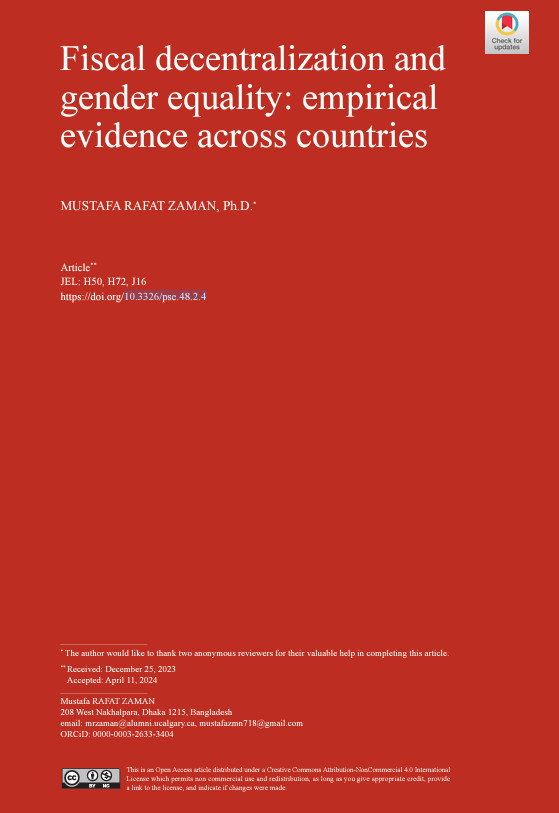Fiscal decentralization and gender equality: empirical evidence across countries
DOI:
https://doi.org/10.3326/pse.48.2.4Keywords:
fiscal decentralization, gender equality, public expenditureAbstract
Globally, over the last few decades, countries have become increasingly decentralized but only recently did they recognize the need for incorporating a gender dimension into such policies. As a result, the relationship between fiscal decentralization, which implies delegating fiscal powers from national to subnational governments, and gender equality remains elusive. In this paper, I study the impact of expenditure decentralization on gender equality using panel data from the Organisation for Economic Co-operation and Development – OECD countries between 2006 and 2021. I find that decentralization of expenditure increases gender equality in these countries. My results also demonstrate that unionization, the extent of a country’s integration with the rest of the world, urbanization, population growth, and the state of democracy also matter for gender equality. This suggests that these factors should also accompany expenditure decentralization if the governments of these countries want to further promote gender equality through such public policies.

Downloads
Published
How to Cite
Issue
Section
License
Copyright (c) 2024 Mustafa Rafat Zaman

This work is licensed under a Creative Commons Attribution-NonCommercial 4.0 International License.








